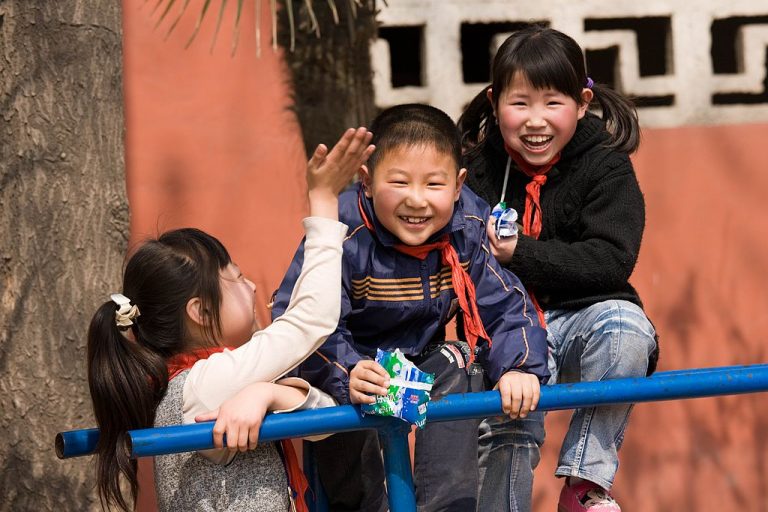China is now allowing couples to have up to three children, but skepticism remains after the 2016 two-child policy failed to produce the desired upsurge in births prompting the Chinese Communist Party (CCP) to urge party members to set an example.
The new regulation was implemented in August 2021 and, according to the state-run Xinhua News Agency, the new regulations will come with “supportive measures, which would be conducive to improving our country’s population structure, fulfilling the country’s strategy of actively coping with an aging population and maintaining the advantage, the endowment of human resources.”
The new law provides several measures to stimulate childbirths, such as spurring local governments to grant parental leave to married couples who “give birth to children in compliance with laws and regulations,” among other social welfare benefits.
Lukewarm responses
Xinhua, the People’s Daily, and state broadcaster CCTV have all posted cheerful cartoon images of children on their social media announcing that the new policy had “arrived.”
The topic has already created a stir on popular Chinese social media, Sina Weibo with most comments being either lukewarm or outright cold, while other comments have been hostile garnering tens of thousands of views and hundreds of thousands of replies.
Success
You are now signed up for our newsletter
Success
Check your email to complete sign up
“There are too many big pressures in life at the moment,” one user said, “Young people are not willing to have kids.”
Yi Fuxian, a U.S.-based demographer and long-time advocate of abolishing China’s one-child policy, said:
“The 2019 Year of Pig stamp features 3 little pigs, heralding ‘Three-child policy’ in China. The 2021 Year of Tiger stamps feature 2 baby tigers, as China’s two-child and three-child policies have gone bankrupt. it [is] impossible for mainstream families to afford 2 children.”
In a December editorial, the party-affiliated China Reports Network urged Communist Party members to get married and have three children, stating there is no excuse for them to have “only one or two children.”
Insufficient incentives
However, the encouragement stirred little excitement among the majority of Party members. “They can try to force us all they want, but there’s nothing we can do without better financial assistance,” a father of one in his mid-30s commented.
China already dropped its one-child policy in 2016, swapping it for a two-child variation. However, a small initial uptick in the birth rate did not prevent it from plummeting over the past few years.
Yue Su, a principal economist from The Economist Intelligence Unit, told The BBC: “While the second-child policy had a positive impact on the birth rate, it proved short-term in nature.”
In 2020, some 12 million babies were born in China, a decline of 18 percent from the previous year. By 2021, the number continued on the same trend, with many forecasting it would fall below the all-time low of 11.97 million births tallied in 1961.
Most couples simply cannot afford more than one child, let alone three, and the provided incentives often do not go beyond extending maternity leave a few months and simply do not make up for the extra costs.
READ MORE:
China Is Ending Its Population Controls, But Many No Longer Want to Have Children
Marriage License Applications Fall to 13-Year Low in China
“In order to lift birth numbers, it’s important to provide cash incentives for a third child,” Beijing University professor Liu Qiao said in a December speech according to Nikkei.
On top of that, “If relaxing the birth policy was effective, the current two-child policy should have proven to be effective too,” Hao Zhou, a senior economist at Commerzbank, said according to Reuters.
“But who wants to have three kids?” Hao added. “Young people could have two kids at most. The fundamental issue is living costs are too high and life pressures are too huge.”
The country’s continual adaptation of its family planning policies may also be a way for the party to admit that government intervention in family planning simply does not work and is also an offense against sexual and reproductive rights.















